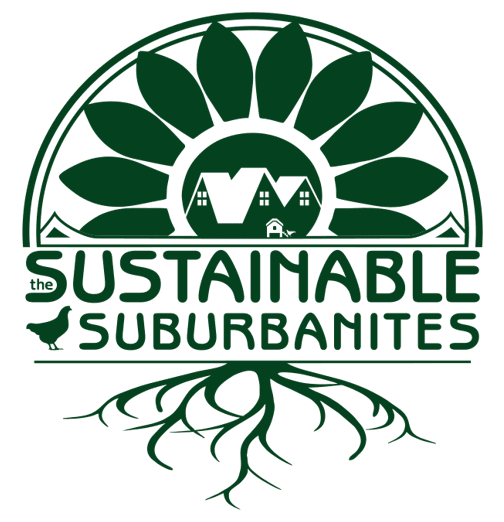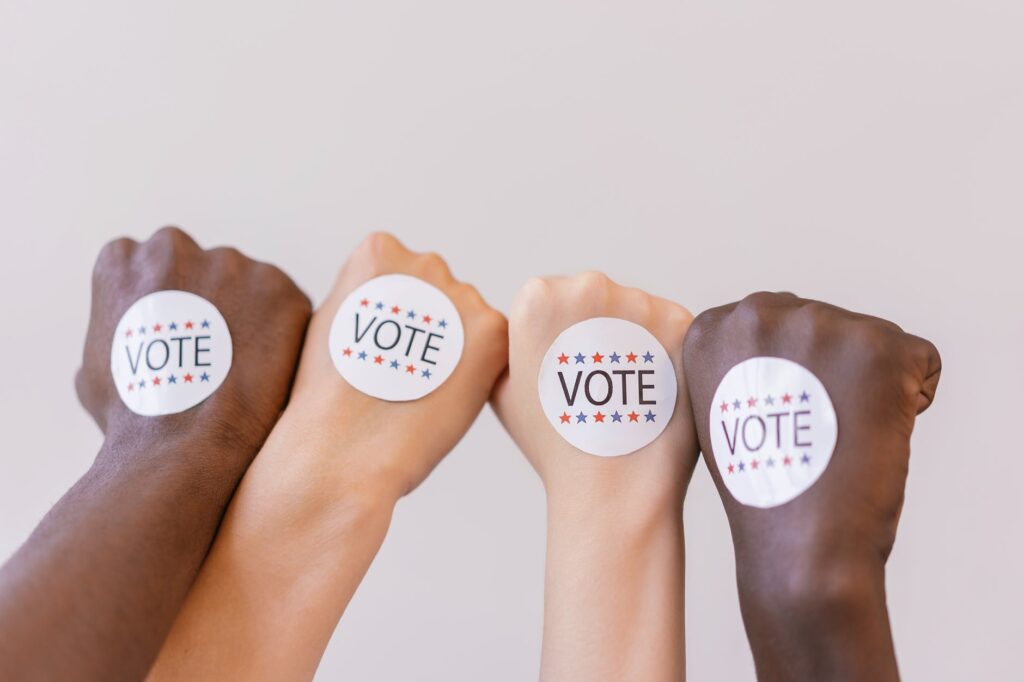It’s “Talk Through Tough Things Tuesday” so let’s chat about everyone’s least favorite thing for a second, okay?
Politics.
“I’m all for sustainability, but I don’t do politics.”
We hear this from our neighbors quite a lot. Of all the annoying habits around us, it is hands down the most problematic.
Politics and sustainability are as interconnected as any two issues could possibly be, but somehow the ‘burbs have forgotten this in their efforts to maintain a toxic level of non-confrontation.
The foundational premises of the American suburb, (Millard included) are those of perfection, simplicity, and conformity. Row after row of the same three cookie-cutter houses, manicured lawns, and a perfect binary political system of Republicans and Democrats politely discussing black-and-white solutions to political issues is the #AmericanDream, right?
I’m genuinely sorry to burst your bubble if you somehow believe this simplified model actually exists or should EVER exist.
It doesn’t, nor should it.
This post may contain affiliate links, meaning we may earn a commission for any purchases made through our links.
Life is Messy – Embrace It
We live in the real world, and the real world is messy, okay? To pretend that we can somehow sanitize our gardens, our public lives, and our political discourse does a severe disservice to the complexity of life on this beautiful planet.
To continue believing that sustainable change can somehow come to suburbia without accepting a bit of messiness and political contention, as a result, is naive. It is comforting to think that way but is in no way realistic. It is time for the suburbs to live their messes out loud, instead of covering them up with their pretty lawns and “Nebraska Nice” bumper stickers. We are part of the political ecology here, in the same way that we are part of the physical environment around us.
There are members of this community who are struggling financially. Members who have suffered at the hands of abusers. Members who have been impacted by gun violence, addiction, religious control, and lack of access to healthcare and mental health services.
Every hot-button “political” issue we ramble on about inside the safe walls of our suburban homes impacts someone right here. These are not “over there” problems. They’re right here, in each of our own neighborhoods. We must think about them critically, and act accordingly.
Put Yourself Back in the Political Landscape
If you can get comfortable with ideas of reducing waste, and planting native plants to reconnect us to our surrounding ecological systems, you can get comfortable placing yourself back within the political landscape that seeks to address these issues. You have to.
How else can we even talk about the issues standing in the way of a sustainable future?
How can we discuss the impact of damaging suburban ideals on the planet if we don’t address the history of how they came to be? Redlining, white flight, prosperity theology – these are all politically motivated pieces of our history, and they created this very space in which we exist and are trying to make change. Part of “doing the work” in this space is attempting to paint a clear picture of how it all came to be. If we are unwilling to do that, we can never unwind it.
Make Change Personal
I am from Millard.
I grew up in an outwardly conforming, but inwardly messy home, raised by a family who would have benefitted immensely from mental healthcare access, acceptance of LGBTQ relationships, and the ability to leave a toxic faith community without societal repercussion. My high school principal was shot and killed while I was in German class during my junior year.
Political policy (or lack thereof) shaped this piece of the world that created me, and the process I had to go through to learn how not to perpetuate its brokenness. The greatest work that I can do, then, is to wield the privileges I do have, to amplify these injustices that occur right here in Millard, in hopes that some people will finally connect the dots within this community.
Breaking big issues down into a local and individualized level is hard, but it’s important work that we can ALL do, and have the responsibility to do.
Climate Justice is Social Justice
So. To re-address the original issue of, “Doing sustainability without politics.” I’m going to speak very plainly and tell you this:
You can’t. It is ALL connected. Climate justice is social justice, and social justice gets political.
Sustainability is a Feminist issue:
Non-straight-cis-male (women, non-binary, LGBTQ) persons are leading the #ZeroWaste movement, almost exclusively, and are still struggling to access basic equality in this country.
Sustainability is a Racial Justice issue:
Black folks are demanding justice for their exclusion from these suburban spaces, and for bearing the brunt of rampant corporate pollution.
Sustainability is a Native Rights issue:
Native peoples are calling for their Land Back and hold critical ecological knowledge within in their communities that they are desperately trying to preserve and teach to us all.
Sustainability is a Public Health issue: Pandemics and climate-change-fueled natural disasters are becoming a near-constant reality of existence in this unpredictable world, and we must get systems in place to deal with that.
The sustainable solutions to climate change and social justice are inextricably connected, and political action is how we ensure they can come to be. To save this planet, and truly create a sustainable and inclusive world, we must amplify the voices of those who have historically not been heard, but who play a critical role in ensuring we can mitigate the worst impacts of the climate crisis.
You Cannot be “Too Much”
Register to vote, write to your representatives, show up on election day, write to your representatives some more, run for office, throw five bucks at a local candidate making waves in your space, and write letters or postcards to voters across the nation. You cannot possibly be “too political” right now.
Reject the suburban apathy you’ve been raised to view as “ideal” or “non-confrontational,” and DO something to create change in your space.
Read more about our experiences writing letters through Vote Forward
Individual action is not enough.
Political action is not enough.
But combined? You cannot do too much, and you just might save the planet.

